#menaechmi
Text
01.11.2023.
18/100 days of productivity
Today was very productive day. Maybe, because of the little change staying at my dad's means. Also, they were out visiting cemetery almost all day, so I was alone.
finished the Menaechmi by Plautus
wrote one of my papers due after the break
outlined the other paper
started reading The Spanish Tragedy by Thomas Kyd for uni
cooked lunch
had a meeting for a campaign I'm handling the communication of



#movie magus#studyblr#student#university student#university#uni#productivity#studying#notes#reading#uni life#student life#writing papers#paper writing#theater studies#master degree#thomas kyd#the spanish tragedy#plautus#menaechmi#cooking#fall break#university work#studyspo#study inspo#study motivation#study inspiration#chaotic academia#academia#100 days of productivity
10 notes
·
View notes
Text
I read Plautus’ Menaechmi for a class and this is an incredibly cold take but it’s the funniest play I’ve ever read
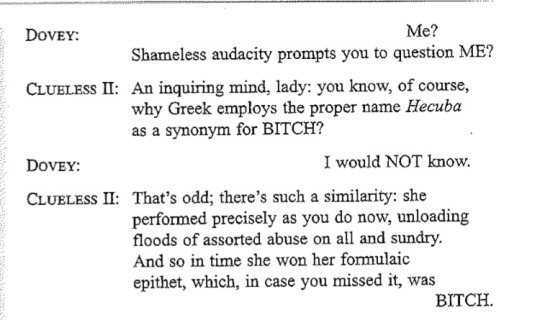


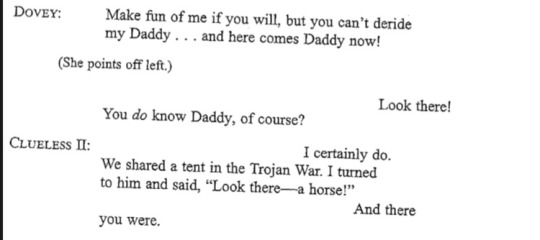

The best part is my professors were like “We HIGHLY encourage you to read this aloud with your friends :)” and so we did and it was five of us cackling trying not to lose it for two hours
6 notes
·
View notes
Text
I think lower decks should do another time travel episode to the events to trouble with tribbles/trials and tribble-ations so this time they're running around trying not to fuck up two timelines and having heart eyes at twice as many crew members
#the comedy of errors to 'those old scientists' menaechmi if you'll forgive the reference#star trek#lower decks#deep space nine#star trek tos#star trek ds9#star trek ld
6K notes
·
View notes
Text
many thoughts about epic: the musical...
i am once again in the middle of essay writing but plautus is boring and my friend introduced me to this album so u already know I binged the entire thing
(quick warning for spoilers of homer's odyssey? if that's necessary?? man idk whatever)
first thoughts naturally concerned odysseus. i have hated this man with a burning passion ever since I started studying classics - i think he is irredeemably selfish, a liar masquerading as a 'resourceful hero,' and basically just a twat all around. that being said, i respect that epic is not an exact replica. in fact, i like that about it!
readings of odysseus as a loving husband and father, and a man who cares deeply for his crew and fellow warriors is one i would love to see reflected in the source text (though i admit i have only read two different translations so far, so this is subject to change depending on translators choice!), if only because it would be so so refreshing. and epic does that extremely well! i find epic's odysseus to be far more likeable, insofar as he is fueled not by greed for glory (kleos for the nerds out there) but rather the desire to return to his wife and son. (I personally would argue that, while homer's odysseus is indeed fueled by a desire for homecoming (nostos), it is not for the sake of penelope and telemachus, but rather concern over the security of his status and position within the household (oikos))
i also very much enjoy that the love he holds for his family is not an inherently positive trait. in the aeneid, and often in myth, it is achilles' son, neoptolemus/pyrrhus who kills the son of hector and andromache, astyanax by throwing him from the walls of troy - less common, it is odysseus (which i did not know until i googled it just now oops). homer's odysseus does not reject the gods. he is beloved by some, hated by others - he receives their boons and curses as they come. he revels in the attention of the divine, no matter positive or negative, for it is proof of his kleos. epic's odysseus is so much more... human. he doesn't vie for glory that reaches the skies. if anything, he rues it. in the horse and the infant he supplicates himself to (who i assume is) zeus - which is such a loaded act i am genuinely struggling to think of how to articulate it, but boy am I gonna try my darndest.
the act of supplication and guest-friendship (xenia) is a very key theme within the odyssey, and to a point in the iliad also - essentially, if a traveller were to arrive at your doorstep, you were obliged to let them in and provide food, drink, and lodgings to that traveller, no questions asked. in return (because reciprocity is VERY important in homer especially), the guest would provide entertainment, tales of their travels, etc, and would be respectful of their host. the patron of these travellers was zeus. any violation of these terms, on part of the guest or host, would be met with divine scorn. for odysseus to supplicate himself to zeus is therefore meta as hell, but I would instead bring attention to the echoing lyric "hes bringing you down to your knees." 'he,' assumedly, is astyanax. his father, hector, is dead; as is his grandfather, priam, and all of priam's other sons. at this point, one could assume that it is astyanax who is ruling troy, who is now the host of the city that odysseus, a traveller from another land, has entered and ransacked. zeus' 'prophecy' of astyanax growing old and seeking revenge (reciprocity! homeric greece had a 'revenge culture' - essentially 'an eye for an eye' as well as 'you scratch my back, I'll scratch yours,' though not always so clear-cut), therefore, would be odysseus' punishment for violating the terms of xenia.
supplication, however, is not limited to guest-friendship alone. for example, in odyssey 22, when odysseus slaughters the suitors occupying his home (is that spoilers?), their priest leodes supplicates himself at odysseus' feet, begging to be spared. odysseus takes his head from his neck in an instant. odysseus' kneeling before astyanax, therefore, is no simple act between a guest and his host - perhaps he is begging the infant for mercy, for forgiveness, or perhaps he is positioning himself for punishment; in killing astyanax, odysseus accepts his own death. perhaps this means his fate (which, in case of homeric epic, refers to the time and manner of one's death), or perhaps it is a part of him that has died. in just a man, odysseus asks "when does a man become a monster?" his killing astyanax prevents the boy from ever becoming a man, and spares him from a life fueled only by revenge and the need to regain his glorious birthright, and it turns him into a monster. just as he says he would, he trades in the world where he is 'just a man' for a world where he is a cruel beast, all for sake of his family.
(quick detour but i really like how odysseus' focus is primarily on penelope rather than telemachus. [insert deadbeat dad joke here], but in reality, he doesn't even know the boy. penelope he chose to marry and fall in love with - it's no question that he loves telemachus, but after ten years, it is only natural that he would miss his beautiful, tricky wife with more fervour than the child he never had the chance to love. it shows he is imperfect, even illogical - the son is the father's entire legacy. just as odysseus is 'son of laertes', so will telemachus be 'son of odysseus', the protector of his immortal heroic legacy. yet it is penelope whom odysseus yearns for.)
(another detour but "i'm just a man" is such a juicy lyric, because the entire message of homer's odyssey is that odysseus is not any man - he is a man that the muses deem worthy to inspire great poets to compose epic poems that persist through thousands of years and a million different voices - a hero. but epic's odysseus is not that hero. he is a man, trying to go home, craving comfort and the warmth of the hearth. these 'flaws' humanise him more than homer's odysseus could ever imagine.)
skipping over to polyphemus, odysseus violates xenia once again by killing polyphemus' sheep, albeit unwittingly. homer makes this violation very obvious - odysseus and crew eat polyphemus' cheese and wine while polyphemus tends to his sheep, knowing that the cave is obviously inhabited, and they even wait for polyphemus to return to ask for more. it is worth noting as well that, at this point, odysseus and crew are still jubilant about their victory, and unlike in epic, these 'detours' are purposeful, specifically so that odysseus can scope out the islands for anything of interest he can snatch and add to his spoils of war, adding to his kleos by means of physical wealth (timē) - which makes odysseus' offer of treasure to appease polyphemus all the more baffling in epic. this odysseus is a leader who prioritises the lives of his men over his own kleos, which makes the final lines - "you shall be the final man to die" // "what?" // "watch out!" - all the more heartbreaking. he wants to protect his men, so that they too may return to their families back on ithaca; the prospect of watching them die before his eyes after he already witnessed so many lose their lives in battle must be so utterly terrifying.
polyphemus is so excellently creepy as well! i loved him in the odyssey - this was where I really started to dislike odysseus, actually. he's a cyclops, obviously inhuman, yet he rears sheep and makes cheese and wine and weaves wicker baskets to keep them in, trying to play at humanity. i really did sympathise with him from the first time I read it. epic's polyphemus is similar, so very calm in his anger yet ruthless all the same, and demonstrates great restraint in comparison to his counterpart in the odyssey, who gets filthy drunk after mashing six men dead and allows odysseus+co. to fashion a stake with which to blind him. much of the violence against polyphemus, as well as the violation of xenia in homer's odyssey is 'excused' by the fact that polyphemus is a 'barbarian', to whom concepts of civilised people do not belong.
(very quick detour but polyphemus' first admonishment of odysseus - "you killed my sheep" up to "take from you like you took from me" - makes such heartbreaking parallels to astyanax's murder and the sack of troy. it almost provides a visualisation of the guilt that odysseus must still be battling. i would have loved to have been in his brain when he heard polyphemus say that.)
the mercy odysseus shows polyphemus is particularly interesting - homer's odysseus leaves him alive and tells him his name purely so that his name will spread and his kleos will grow. but epic's odysseus, despite his conviction to kill in survive and to avenge is fallen comrades in remember them, spares him. in part, this is to assure them an escape, so that the cyclops' giant body does not block their exit - but athena's interruption makes clear that this is not all. she criticises him, remarks "he is still a threat until he's dead." no doubt this calls back to zeus' warnings about astyanax, hence his refusal (or inability?) to commit to slaughter. for a homeric greek hero to allow a foe to live on after his allies had been slaughtered is a grave failure of reciprocity, casting shame on both the hero and their enemy. homer's odysseus escapes this with his reputation intact, since as a result polyphemus curses him to face poseidon's wrath - as I mentioned, for a hero, even negative attention from the gods is a good thing as it proves that their reputation/glory is known all over, even in olympus. but, as we have established, epic's odysseus cares not for kleos. the decision to tell polyphemus his name is entirely impulsive and irrational, grieving his comrades, hence athena's outrage.
the relationship between athena and odysseus is founded entirely on the principles they share, described in warrior of the mind (if anyone can lmk whereabouts this song fits in the timeline I will be so grateful, I'm stupid unfortunately :/). they value wisdom, reason, and rationality over brute strength and bloodlust. epic's athena becomes odysseus' patron goddess with the goal to "make a greater tomorrow" and "change the world" - aspirations that are entirely foreign to any homeric god. gods in homer do not care about the wellbeing of humans unless they are directly related to them, and they certainly don't care about the wellness of humanity as a whole. humans are toys and tools of the gods. the amount that athena cares for odysseus, even in the odyssey, is unusual, demonstrative of how much she cares for him, yet epic makes their comradery more obvious, even going as far as to (tentatively) call them friends. my goodbye frames athena's anger as disappointment at an experiment failed - calling back to warrior of the mind, where she claims to have "designed" him - but odysseus' replies to her makes clear that it is far more personal. perhaps, to her, odysseus acting so irrationally is even a betrayal; odysseus is abandoning the principles of reason they both once held and thus is forsaking all that they once shared and that she, as the goddess of wisdom, stands for.
ive always considered athena to be a very interesting goddess. she is a patron of both war, which in homer is only carried out by men, and weaving, the traditional work of women within the household - her very nature is a contradiction of masculine and feminine. although it is ares who is considered the 'black sheep' of the olympians for his brutality in war, epic's portrayal of athena through odysseus' lens paints her as lonely and ostracised - "since you claim you're so much wiser // why's your life spent all alone? // you're alone." It is clear that odysseus here does not view her as his patron at all, rather as a friend - and to that she takes offence, because she is a goddess, eternal and all-powerful. she does not need friendship or comradery; those are mortal concerns alone. personally, I see epic's athena as incredibly insecure. she cuts odysseus off because she cannot bare that a mortal has been able to read her so clearly, to see all the ugly parts of herself that she keeps hidden to retain the facade of the perfect goddess. she knows the paradox within herself - warrior and woman, immortal and alone - and rues that odysseus was able to see it as well. the cruellest part, the most ironic, is that his being able to figure out the true, imperfect nature of a god shows that he has not abandoned the path of the warrior of the mind. in fact, his wisdom extends beyond mortality into the realm of the divine. but athena is blinded by her anger and insecurity, and she says her goodbyes. she disappears from there, only to appear again to try to warn odysseus of his crew opening the bag of winds given to him by aeolus in keep your friends close, once again demonstrating her care for him, despite her anger.
the amount that odysseus cares for his crew is demonstrated time and again throughout the album, yet in the end, he still slowly loses their trust. aeolus' winds are the first sign. his crew betrays his orders upon the first whisper on the wind that he might be keeping treasure from them. the next sign, in puppeteer, is eurylochus' confession upon arrival to aeaea (circe's island), which odysseus brushes off, much as he brushed off eurylochus' concerns in luck runs out. then, in a matter of moments, 600 men are reduced to forty by the wrath of poseidon - which in itself is a significant change. while odysseus in epic is explicitly blamed for failing to kill polyphemus, homer's odysseus takes no responsibility for the deaths of hundreds of his men. it happens when they arrive at telepylos, which, unbeknownst to them, is home to the laestrygonians, a race of cannibalistic giants. odysseus, apparently sensing something off (who tf does he think he is, spiderman?), allows his entire fleet to enter the bay of telepylos while his ship alone remains outside - and when those ships are attacked and trapped, he alone takes his single ship and escapes, allowing twelve ships of men to be ripped apart and eaten by cannibals. an act which he shows no remorse for.
in my interpretation of homer's odyssey, it is this slowly slipping trust that eventually leads to his men ignoring his warnings and feasting on the cows of helios which leads to the deaths of all his remaining crew, including eurylochus and polites (spoilers? idk). so, once epic: the musical catches up to book 12 of the odyssey you WILL be seeing me again I hope ur excited.
there is definitely more i could say here, especially about the circe saga bcs ohhh my god I love circe and I love this circe especially (a female character with actual motive other than being a victim? homer could never) but unfortunately I'm running out of steam and I do in fact have 3 essays due this month (help) so I will probably return to this later !! hopefully its readable bcs I'm not going back to edit any of this ;)
#joined cort's spotify jam while writing this and got rickrolled#the message here is trust no one#skipped my seminar to do work and did this instead#fuck u plautus and your dumb menaechmi#this took like 4 hrs to write i have issues#epic the musical#epic the ocean saga#epic the circe saga#epic the cyclops saga#epic the troy saga#epic#classics#classical studies#homer's iliad#homer's odyssey#the odyssey#odysseus#penelope#media analysis#literary analysis#longpost#homer
83 notes
·
View notes
Text
shoutout to oscar wilde for not being confusing in the script with disguised characters
#naoise.txt#the disguised characters are very nicely separated by always using their real name in the importance of being earnest#unlike menaechmi/comedy of errors#fuck those twins.#...i mean they did. important plot information there.#but those were such a headache to read oh god
4 notes
·
View notes
Text
Explorando os primeiros Gêneros Literários
Neste tópico, mergulharemos fundo nos gêneros literários, uma parte fascinante da literatura que pode ampliar seu conhecimento e aprofundar seu apreço pelas palavras.
Raízes dos Gêneros Literários
Os gêneros literários têm uma rica história que se inicia na Grécia Antiga, onde grandes pensadores como Platão e Aristóteles começaram a desvendar as várias formas de expressão na literatura.…

View On WordPress
#"Fedra" de Sêneca#"Menaechmi" de Plauto#Anacreônticas#Anacreonte#Apolônio de Rodes#As Guerras Gálicas#As Metamorfoses#Aulularia" de Plauto#Éclogas#Édipo Rei#Catulo#Eneida#Estácio#Eurípides#Gênero Dramático#Gênero Lírico#Gênero Narrativo#homero#Horácio#Ilíada#Júlio César#Medeia#Odes#odisseia#Os Doze Trabalhos de Hércules#Ovídio#Píndaro#Petrônio#Prometeu Acorrentado" de Ésquilo#Safo de Lesbos
0 notes
Text
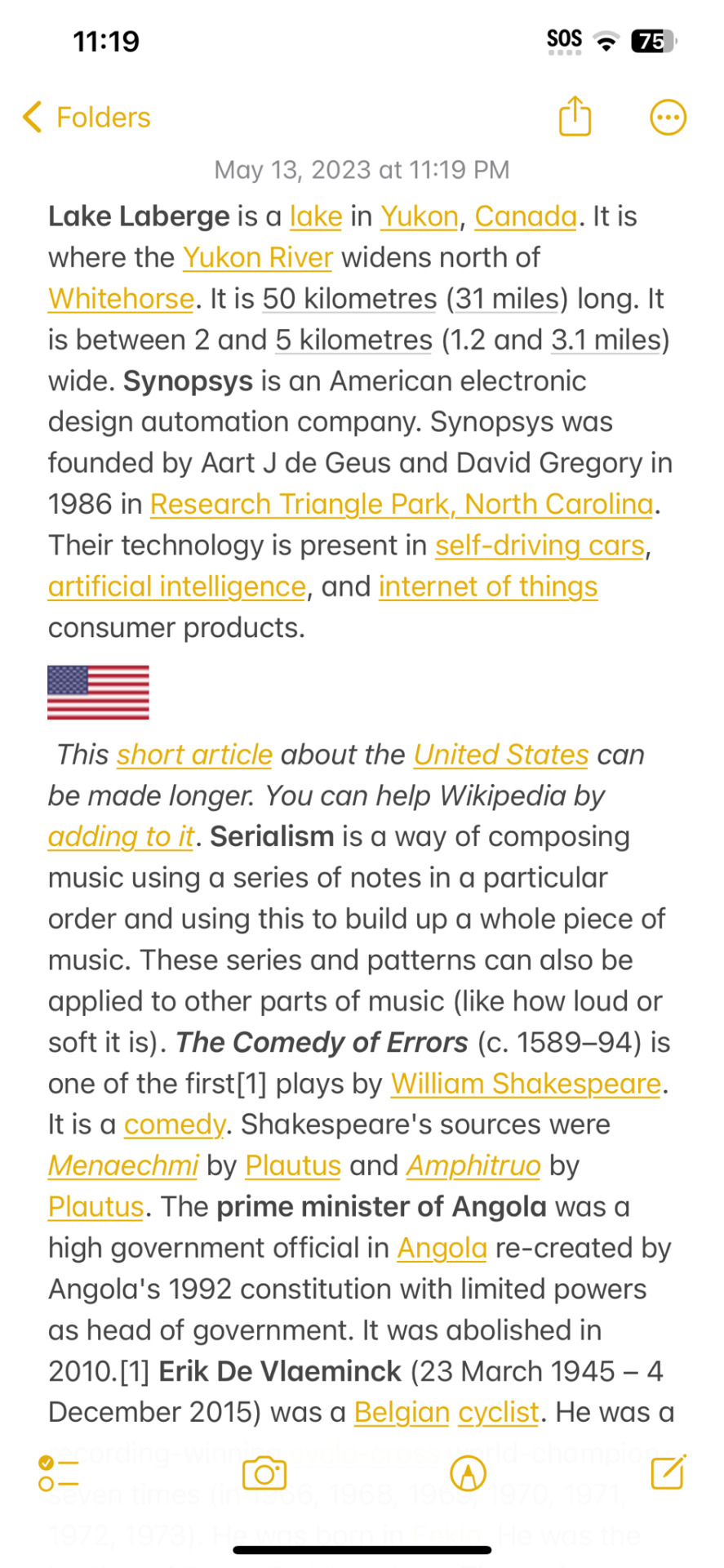
Lake Laberge is a lake in Yukon, Canada. It is where the Yukon River widens north of Whitehorse. It is 50 kilometres (31 miles) long. It is between 2 and 5 kilometres (1.2 and 3.1 miles) wide. Synopsys is an American electronic design automation company. Synopsys was founded by art J de Geus and David Gregory in 1986 in Research Triangle Park, North Carolina.Their technology is present in self-driving cars, artificial intelligence, and internet of things consumer products.This short article about the United States can be made longer. You can help Wikipedia by adding to it. Serialism is a way of composing music using a series of notes in a particular order and using this to build up a whole piece of music. These series and patterns can also be applied to other parts of music (like how loud or soft it is). The Comedy of Errors (c. 1589-94) is one of the first [1] plays by William Shakespeare.It is a comedy. Shakespeare's sources were Menaechmi by Plautus and Amphitruo by Plautus. The prime minister of Angola was a high government official in Angola re-created by Angola's 1992 constitution with limited powers as head of government. It was abolished in2010. [1] Erik De Vlaminck (23 March 1945 - 4December 2015) was a Belgian cyclist. He was aS CLONES
1 note
·
View note
Text
Shakespeare’s The Comedy of Errors: Contemporary vs Modern Performances
The Comedy of Errors is a short but humorous play about the mistaken identity between the separated twins named Antipholus and their identical servants, who are both named Dromio. It follows the cascade of events that this error causes. The Royal Shakespeare Company states that the original production of The Comedy of Errors would have been held on a thrust stage, in the open air. This allows the actors to get closer to the audience whilst still having a backdrop behind them. It would have been a simple stage production with few props, this allowed the audience to focus on the events and language that was happening in the play. This would have been important, especially with this play, to understand the events and which characters were on stage.
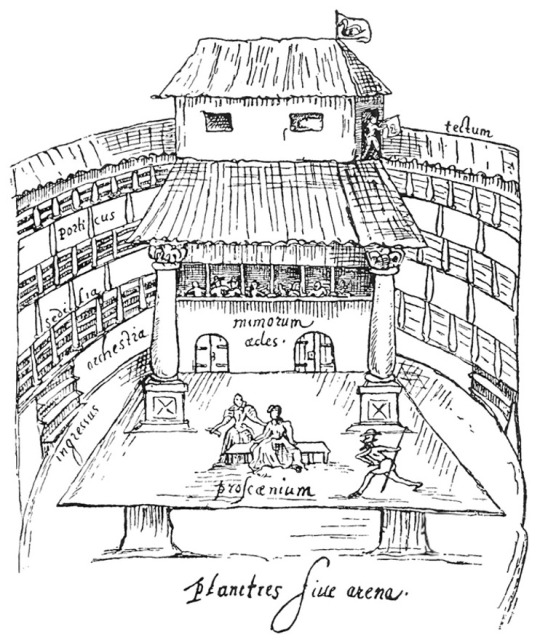
However, the 1983 BBC television production of The Comedy of Errors by Shakespeare has been staged quite differently to the contemporary production. The modern day interpretation allows for more complex staging, with the entire production taking place in either the centre stage or in one of the surrounding buildings.
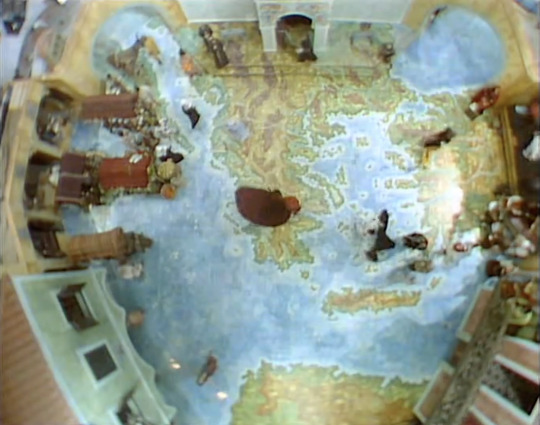
The staging used in this production enhances the mistaken identity narrative as the actors are able to travel between different buildings. This creates a clearer separation of the twins. With the play being televised as opposed to performed live, it allows the audience to travel with the actors, which effects the audience perspective to that of a contemporary performance.
The Comedy of Errors is based on the play Menaechmi by Plautus, as the actors would have originally used masks to identify who the twins were and to make the actors look identical. However, Shakespeare would have used makeup instead of masks and emphasised costumes to convey the illusion of being identical. During Elizabethan England, stage makeup was much more limited than it is today, meaning that the casting decision would have been more crucial to ensure the actors playing the twins looked more alike, as mistaken identities is a necessity for the humour of the play.

This issue is made significantly easier in BBC television production of The Comedy of Errors. This is because the use of film allows editing which enables the same actor to be duplicated on-screen, creating the illusion that they are two separate individuals. The use of technological advancements gives a greater advantage to theatre production on-screen over those performed on-stage.

This may help enhance the modern viewer experience when watching because they are able to fully believe they are watching twins and understand how people would mistake them so easily. The viewer themselves may need more time to figure out which version of the twin is on-screen, whereas on-stage it may have been slightly more obvious because they are being played by two different people. This is the advantage to the use of masks in Menaechmi as the actors would’ve appeared to be identical due to the masks worn.
The costumes in the BBC production are not modern because it is replicating an original Shakespeare play meaning the appearance of the actors are very similar. One main difference of the actors in the BBC production and an original production is that men would have also played the female roles whereas now both men and women act their own roles.
Act V Scene I Analysis
The final scene in The Comedy of Errors unravels the issue with identity and conflict presented throughout the play. The play alludes to the question of what identity is and how is it identified if our name and appearance also belongs to someone else. It asks the question: is our identity ours or what people perceive us to be? The critic Jennifer Edwards states that “To lose one's place, therefore, might be to lose oneself.” (Edwards, 2020). Edwards is claiming that identity creates our entire being and without it we are lost. Which is why upon confrontation Dromio of Ephesus immediately claims the identity he thinks he belongs to, "Now am I Dromio and his man unbound" (The Comedy of Errors, 5.1, 63). This highlights how important identity is because it is the foundation of people's place in society and their image. This is where the conflict lies in the play, with multiple people believing themselves to have the same identity, same place in society and image. Further issues are created when Duke Solinus asks, “Which is the natural man, And which the spirit?” (The Comedy of Errors, 5.1, 64). There is no anagnorisis for the characters as there is still no realisation that they are twins, they question both their own identity and each other’s. This causes identity issues for both sets of twins as it links back to the question framed throughout the play of what identity is. Their own names and appearance also belong to others. This could be a commentary on society and how people would rather fit in than be their own individual, such as following fashion trends or believing in what others say instead of forming their own opinions. Shakespeare is critiquing society on how similar is and is emphasising the importance of everyone having their own individual identities.
For Abbess, or Emilia, her clothing becomes her identity. She is seen as her role within society as the head of the Abbey. Her previous identity is lost so she is not recognised by her sons as their mother. In Act V Scene I, when the conflict is resolved she is reborn into her original identity, “My heavy burden ne'er delivered.” (The Comedy of Errors, 5.1, 66) and reinstate herself into the role of a mother. The importance of identity is emphasised here because Abbess was not able to fulfil the role of the mother as she wished because her identity was taken away by others as they only saw as her role in society. Motherhood would have been seen as the most important role for a woman and she was stripped from this. The resolution of the conflict however has enabled her to be free and take on her true identity. The play ends with the Dromio twins walking off together, “We came into the world like brother and brother” (The Comedy of Errors, 5.1, 67) as that is how their life began. Their identity has been resorted and the conflict has been resolved. The ending of this scene highlights the significance of identity as brothers join together in peace. It is also a resolution to what critic Richard Ashby claims, as he states that “The play stages the traumatic ramifications of a rift between personal and public perceptions of identity” (Ashby, 2017). A person’s identity is an essential part of their whole being and when the public perception of your identity is incorrect mayhem is catalysed. The brothers walking out together shows the relief when the conflict is all resolved.
The final scene in The Comedy of Errors holds up in a modern society as still people’s place in society, such as their role in work or who their connections are, create an identity that is very important. Therefore, Shakespeare’s emphasis on the importance of identity still resonates today.
Bibliography
Ashby, R. (2017) Face-off: defacement, ethics and the ‘neighbour’ in The Comedy of Errors. Textual Practice, 32(8), 1255-1275.
Burtsdrama (2023) Elizabethan theatres, stages, sets and props. Available online: https://burtsdrama.com/2015/06/09/elizabethan-theatres-stages-set-and-props/ [Accessed 19/3/2023]
Edwards, J. (2020) “Mark how he trembles in his ecstasy”: space, place, and self in The Comedy of Errors. Shakespeare Studies, 48, 125.
Royal Shakespeare Company (2023) Stage history. Available online: https://www.rsc.org.uk/the-comedy-of-errors/about-the-play/stage-history [Accessed 18/3/2023]
Shakespeare, W. (2017) The Comedy of Errors. Digireads.com Publishing
The Comedy of Errors (1983) Directed by James Cellan Jones [Film] British Broadcasting Corporation. Available online: https://learningonscreen.ac.uk/ondemand/index.php/prog/RT3F5874?bcast=119688571[Accessed 18/3/2023]
World4u (2013) Ancient theatre masks. The masks of tragedy and comedy. Available online: https://world4.eu/roman-theatre-masks/ [Accessed 20/3/2023]
1 note
·
View note
Text
Reunited

On a warm evening in July, by the banks of the River Avon, with the Swan Theatre majestic in the foreground, a 500-seat outdoor theater created to comply with covid restrictions, is bustling with excitement.
The garden theatre, set out in a semi-circle, is reminiscent of the Roman amphitheaters, built around the time of Plautus, the writer of the Menaechmi, which Shakespeare used as the basis for this play.

The Garden Theatre, Le May 2021

The Globe Theatre, Thinklink 2017
The original globe theatre, as it was in Shakespearean times, was set up with multiple levels in contrast to the Garden theatre’s very simple stage.
All parts in the original productions would have been played by men, this modern production has men and women playing the parts from various ethnic backgrounds.
Microphones are used to significant effect. Act 1 Scene 1 Egeon is recalling the tragedy and the journey that he has been on and how he is trying to find his lost wife Emilia, twin sons, and their twin servants. A microphone is placed in front of him so that his voice is loud and clear above the vocal sound effects, whilst the cast sway as though they were on the ill-fated ship.
Microphones are also used to provide an invisible door in Act 3 Scene 1, where the two Dromio's are arguing on either side of the door. The audience knows there is not a door between them, but the actors act as if there was. This use of dramatic irony increases the humour in this scene and using the need for a simplistic and sparce stage set up adds another element to the production.
The costumes are reminiscent of 1980’s Dubai with a mixture of big hair, bright leotards, and eastern military uniforms. The setting is of a shopping centre, rather than a marketplace as it would have been in Shakespeare's time. The cast are milling around with expensive-looking shopping bags. This gives the impression of a consumerist society.

Guy Lewis as Antipholus of Syracuse, Photo by Le May 2021
Adriana is played by Hedydd Dylan who is heavily pregnant, this has been written into the performance by Phillip Breen the director, giving an interesting new element to the relationship with her husband, especially at the end of the play when they are reconciled.

Hedydd Dylan as Adriana, Le May 2021
There is also a deaf actor whose words are spoken by another actor as he uses sign language. This is a powerful addition to this modern version as it gives an inclusive tone to the performance.
Violence in this version is not seen as humorous, it is treated as upsetting and shocking. A sound effect like a cymbal being struck is used, then silence hangs as the characters and the audience comes to terms with what has happened. This gives the act of violence more weight and the play more layers and depth to the story. In Shakespeare's time it would have been seen as funny to beat your servant, so-called slapstick comedy, not in keeping with today's audience and society values.
Comedy is provided by visual scenes not included in the Shakespearean version. In Act 2.2 Antipholus of Syracuse (Guy Lewis) and Dromio of Syracuse (Jonathan Broadbent) are in the Restaurant discussing how men lose their hair. The waiter silently appears at the table, bends over to pour the wine and his toupee flaps down to hilarious laughter from the audience. The addition of this scene adds modern-day relatable humour to the scene.

Waiter Scene, Le May 2021
In Shakespearian times hair loss in men was thought to be a symptom of a sexually transmitted disease. The scene talks about ‘plain dealing’, being a ‘plain dealer’ was being seen as straightforward and ‘without wit’ to be devious or guileful; but is also alluded to as an innuendo as if a man had ‘plain dealings’ or sex with a woman he was more likely to catch a venereal disease and therefore lose his hair early. (Whitworth 113)
A Comedy of Errors is a play about conflict rising from confusion of identity. In Act 2.2, Adriana finds Antipholus of Syracuse in the restaurant as she wants him to come home to dinner. He doesn’t recognise her as her husband is Antipholus of Ephesus. He looks at her with a confused frown and she notices this. She asks why he is acting as he doesn’t know her and alludes to the fact that he is having an affair with a Cortisan as she says that ‘Some other mistress hath thy sweet aspects’. She then continues that at one time she had an ability to please Antipholus’ senses, but now he is estranged not only from her but from himself as they are one. She likens their relationship to being like a ‘drop of water’ and that it cannot be divided without taking a part of himself away, they are indivisible. His being unfaithful has contaminated her like poison and made her a ‘strumpet’ because as they are one anything he does to himself he does to her.
He is confused that there is a woman, who he doesn’t know, shouting at him and saying she is her husband, accusing him of committing adultery.
She then pleads for him to be faithful to her so that she isn’t ‘stained’ or dishonoured.
He then replies that he doesn’t know her as he is new in town, ‘In Ephesus I am but two hours old’. He doesn’t know the local ways and is a stranger to the area and to her. Luciana (Avita Jay), Adriana’s sister appears and asks Antipholus what is going on and why he is behaving strangely and not coming home to dinner when Dromio has told him to. Dromio of Syracuse is confused as it wasn’t him that told Antipholus to come home to dinner and that he has never seen the two women before. Antipholus is then confused as he remembers Dromio of Ephesus telling him to go home in the marketplace.
Antipholus then asks why the women know their names if they have never seen them before and wonders if they have supernatural or perhaps witchlike knowledge. Adriana is very offended by this, not only is her husband acting as though he doesn’t her, but he is also now treating her with contempt. She ends the scene by saying that he is an ‘elm’, and she is a ‘vine’ this is alluding to Psalms 128.3. Where the vine grows around the elm, again making them as one, no longer having their own identity.
At the end of the production a moment of ‘anagnorisis’ is played out when the Abess (Zoe Lambert) reveals that she is Egeon’s wife and that there is two Antipholus’ and two Dromios’. They are all reunited as a family. According to Dominic Cavendish ,the scene is particularly touching when the two Dromios’ embrace is reminiscent of how families can finally be reunited after the long months of separation due to the Covid 19 pandemic.
youtube
Act 5 Scene 1 | The Comedy of Errors | 2021 | Royal Shakespeare Company Youtube 2021
1 note
·
View note
Text
Plautus would probably be that one fandom author who writes crack fics that everyone has read at one point
#plautus#classics#am I the only who thinks so?#classic literature#latin literature#the brothers menaechmus#amphitryon#persa#Menaechmi#I'll have to read more of plautus to consolidate this argument#latin#literature#roman#romans
4 notes
·
View notes
Text
31.10.2023.
17/100 days of productivity
I'm visiting my dad and his wife for a few days. I'll try to study here as well (I have to) but also spending time with them.
Today I
finished Comedy of Errors (did not like it)
started reading The Menaechmi by Plautus
started planning one of the papers due after the break
helped my dad put a standing lamp together
figured out and showed them how to log into their Netflix on their new smart TV
Yes, I'm always building and fixing things when I'm visiting them 😄
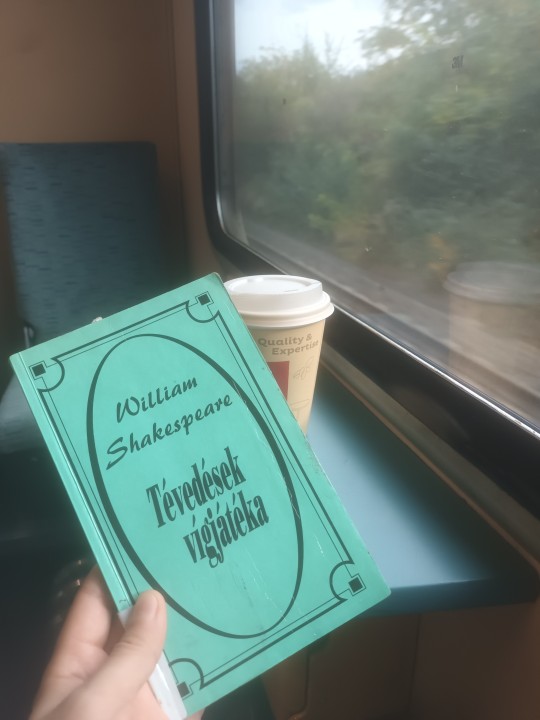

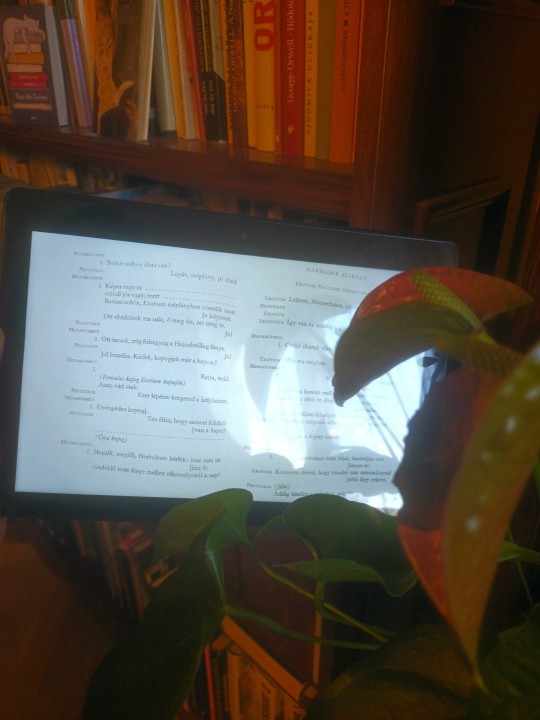
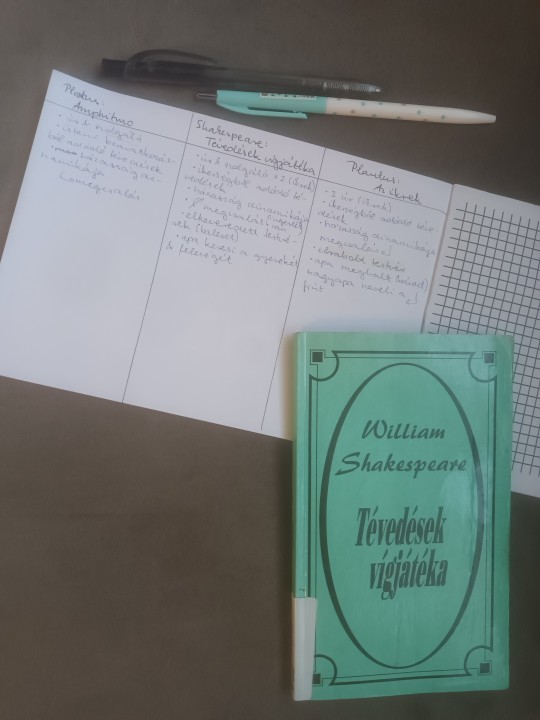
#movie magus#studyblr#student#university student#university#uni#productivity#studying#notes#reading#uni life#study motivation#studyspo#study inspo#study inspiration#study aesthetic#100 days of productivity#family time#plautus#shakespeare#comedy of errors#the menaechmi#theater#play#drama#theater studies#masters#masters degree
4 notes
·
View notes
Text
Give me more rome movies that are lighthearted and fun. Not all Rome movies have to be gritty and dark. Filmmakers watch a funny thing happened on the way to the forum and take notes.
#heck you dont even have to write a new movie!#theres a lot of really great roman comedies!#menaechmi bacchides miles gloriosus#they might not do well at the box office but ill appreciate them
5 notes
·
View notes
Text
The Brother’s Menaechmi/Menaechmus Characters as John Mulaney Quotes:
Menaechmus I:

or alternatively

Menaechmus II (Sosicles):

or alternatively

Messenio:
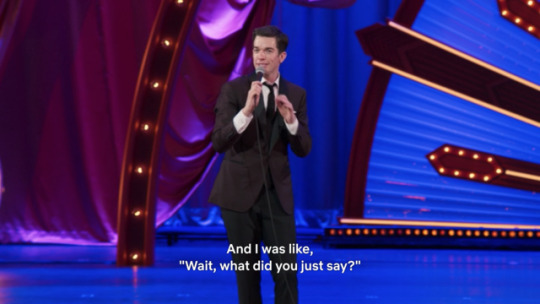
or alternatively

Erotium (the Mistress):

Uxor (the Wife):

Peniculus (the Parasite/Sponge):

The Mother/Father:

#the brothers menaechmi#the brothers menaechmus#menachmus i#menaechmus ii#messenio#uxor#erotium#classic#plautus#plays#theater#theatre#john mulaney
13 notes
·
View notes
Note
hiiii so i know u like classics/ancient roman stuff — how does one get into that? like what books do u recommend etc etc
HELLO and ok i’m so not an authority on this because i’m really just getting into the classical antiquity scene myself..but probably the start of my ancient rome madness was shakespeare’s julius caesar which i CANNOT stress enough slaps so hard. ***not like fully historically accurate i gather, but i love the drama and i’ve been delighted that actually most of roman politics WAS that dramatic in reality. cut bc i love to run my mouth
in terms of books i haven’t been reading that much because school term :-// but i read erich segal’s classical comedy anthology (aristophanes’ birds, menander’s samia, plautus’ menaechmi, terence’s eunuchus) recently because i wanted something free and easy and i liked the roman ones (plautus & terence)! recommend if you’d like something mindless (though ancient comedy does still tell u important stuff about society at the time) BUT much caution because as with a lot of classical antiquity the plays deal heavily with rape and misogyny (ancient comedian voice: watch how hard i can hate women!!!)
for poetry i’ve been in the middle of ovid’s metamorphoses (horace gregory’s translation) for a while but i like what i’ve read, like that the myths are split and small enough to uhh eat one at a time. ovid = snack real…….other stuff on my reading list are rubicon and attis by tom holland who other than being a critically acclaimed young british actor has also written some fantastically insightful historical non fiction …… this is a joke clap if you wish
what i HAVE been consuming however is loads of podcasts. they’re fantastic because i can put them on while i’m doing work..it’s really like SING MUSE! OF THE BATTLE OF PHILIPPI. come hither fair bard and play me some mother f*cking odes. in particular The Ancients which is on spotify and has loads of stuff on ancient history and the like; the guests on the show are all historians/classicists who’ve written about the content of their episode so if you like the topic you can do the further reading really conveniently. i recall that battle of philippi episode in particular made me very upset about cassius and the collapse of the roman republic….it’s a little scattered sometimes but i like it because it makes me feel like i’m piecing together gossip bit by bit. E.G. i think on one of the cicero episodes they mentioned his clodius feud and i, very unlearned at the time, went CLODIUS? OF THE CATULLUS BITTER BREAKUP POETRY FAME? WHO IS THIS GUY and i found other episodes of other podcasts about him and they just kept saying things. the scandals didn’t stop. #problematicfave #prettyboysupreme #legitimateplebeiantribune #gangleader
speaking of catullus YES also read catullus’ poetry. most of it you can find online and gay people on tumblr me included do translations like they’re being held at gunpoint (honestly maybe one of my favourite ways to consume translated works though it’s about the personal yet communal nature of it….sharing verses..sigh..) AND—re podcasts, i heard the cicero audio drama is really good, but it costs a bit to listen to and i haven’t figured out how debit cards work so that’s on hold for me rn, but i’m PLOTTING
ik you asked about ancient rome but ...read war music by christopher logue recently and ooohhh goodness. it’s great!!! i love fight scenes and the like so i suppose it appealed directly to me but it’s really cool in general (iliad books 16-19 translation/adaptation but guy didn’t speak greek at all! and it F*CKED! my idol). i’m in the middle of cold calls atm. i’d recommend the actual iliad but i can’t yet because i’m terrible, glossed it until i got to the river fight scene and haven’t gotten around to my reread, though i like caroline alexander’s translation a fair bit from what i remember. anne carson has loads of really good stuff but i’m biased bc autobiography of red cracked my head open and drank the meat the first time i read it. Float’s a great collection too and has the plus side of looking really pretty in a shelf. also gotta start the euripides play collection i got, eventually…! will update
#also i follow some intimidatingly intellectual classics students on here and i nod and take notes as they post#about things that i am sixty degrees away from comprehending with my brain#note that these are just things i like personally this is by no means a scholarly guide#also only marginally related. but i have been desperately wanting to play call of cthulhu invictus recently#eldritch happenings!!! in the roman empire!!! BRO!!!#ask
19 notes
·
View notes
Note
just to add to the name discourse (i’m a cas coded classics major lol) one of the main characters in a famous roman comedy by plautus called menaechmi is called “sosicles” so thats why i pronounce sobsicles the greek way!!
ohhhhh, now word association is always a fun game.
#im one letter away from being from a roman comedy#my crowning achievement#again pronounce it however it makes your brain happiest#sobs says things#cleaning out my asks#nonnie
7 notes
·
View notes
Text

Lake Laberge is a lake in Yukon, Canada. It is where the Yukon River widens north of Whitehorse. It is 50 kilometres (31 miles) long. It is between 2 and 5 kilometres (1.2 and 3.1 miles) wide. Synopsys is an American electronic design automation company. Synopsys was founded by art J de Geus and David Gregory in 1986 in Research Triangle Park, North Carolina.Their technology is present in self-driving cars, artificial intelligence, and internet of things consumer products.This short article about the United States can be made longer. You can help Wikipedia by adding to it. Serialism is a way of composing music using a series of notes in a particular order and using this to build up a whole piece of music. These series and patterns can also be applied to other parts of music (like how loud or soft it is). The Comedy of Errors (c. 1589-94) is one of the first [1] plays by William Shakespeare.It is a comedy. Shakespeare's sources were Menaechmi by Plautus and Amphitruo by Plautus. The prime minister of Angola was a high government official in Angola re-created by Angola's 1992 constitution with limited powers as head of government. It was abolished in2010. [1] Erik De Vlaminck (23 March 1945 - 4December 2015) was a Belgian cyclist. He was aS AND
1 note
·
View note